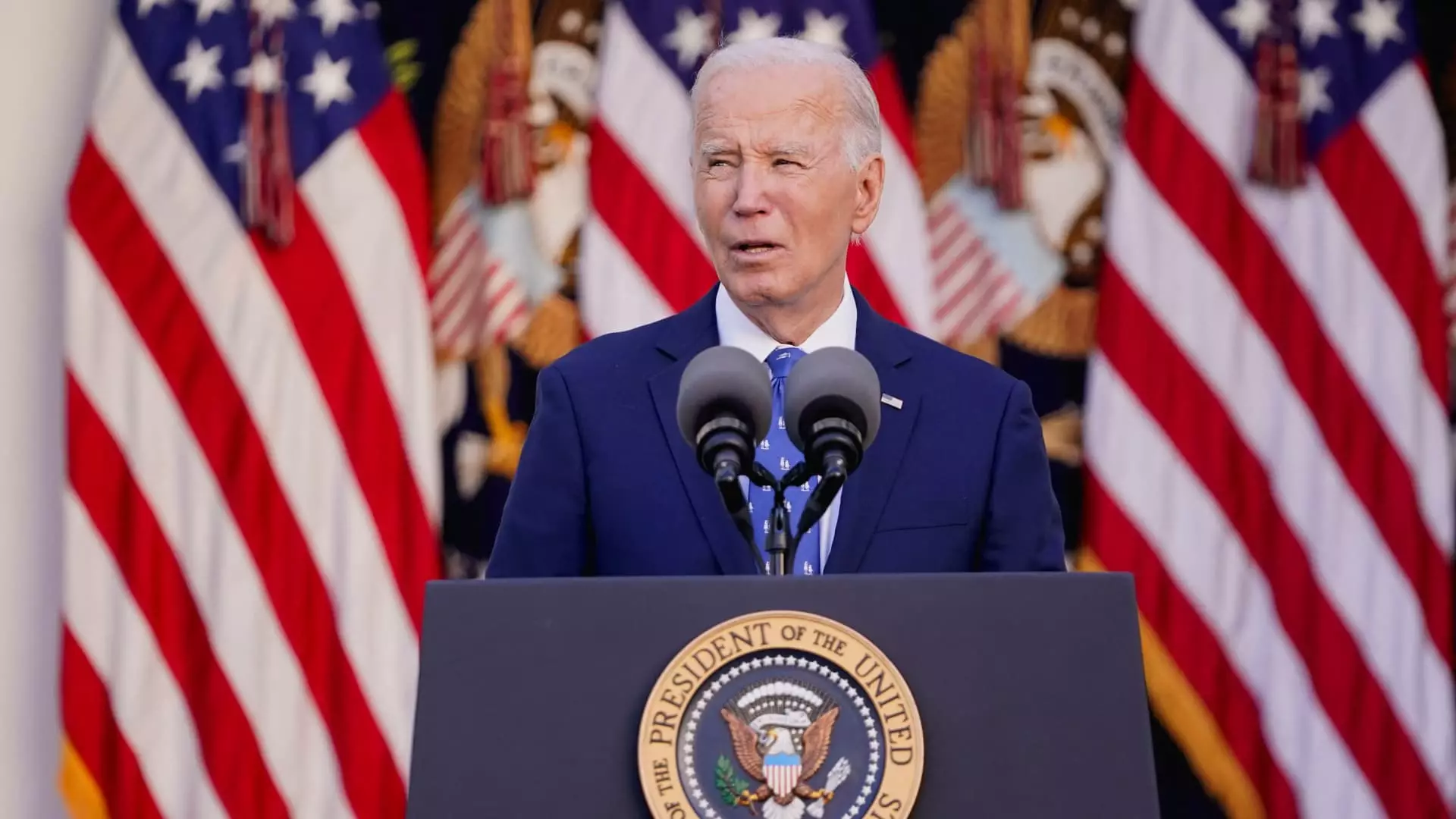The recent upheaval in Syria, culminating in the toppling of President Bashar al-Assad’s regime, has unleashed a wave of cautious optimism, with President Joe Biden recognizing this moment as pivotal for the Syrian people. In his remarks from the Roosevelt Room at the White House, he lauded the potential for a democratic transition, while simultaneously emphasizing the inherent risks associated with such profound political change.
Biden characterized the fall of Assad as a “historic opportunity” for the Syrian populace, many of whom have endured years of oppression and violence. The President articulated the vision of a more stable and democratic Syria, stating, “It’s a moment of risk and uncertainty.” This duality captures the essence of political transitions: while the collapse of an autocratic regime can lead to newfound freedoms, it also opens the door to instability and power vacuums that can be exploited by extremist forces.
The U.S. aims to be a guiding force during these tumultuous times. Biden’s commitments to work alongside international allies and various stakeholders in Syria underscore the importance of a collaborative approach to nation-building. The President acknowledged that the surrounding nations, including Jordan, Iraq, Lebanon, and Israel, would play crucial roles in supporting Syrian stability. This international cooperation is particularly relevant as these countries have their own vested interests in Syria’s outcome, particularly regarding regional security.
An essential component of Biden’s strategy focuses on the ongoing threat posed by ISIS. The President reiterated that the organization would likely attempt to capitalize on the leadership vacuum left by Assad to regain strength and territory. He assured the American public of continued U.S. military operations aimed at dismantling ISIS infrastructure within Syria. Notably, Biden mentioned conducting several precision air strikes specifically targeting ISIS camps and operational capacities, demonstrating that the U.S. remains vigilant and ready to act decisively against terrorism.
The situation is further complicated by the nature of some rebel groups who played a role in Assad’s ousting. While their initial support may appear beneficial, Biden cautioned that historic patterns of human rights abuses and terrorism could resurface among these factions as they assume governance roles. “We will assess not just their words but their actions,” he asserted, indicating that U.S. support would be contingent upon behavior and respect for human rights.
Beyond military objectives, Biden’s administration seeks to assist in establishing a new governance structure for Syria. The commitment to help “all Syrian groups” build an independent and sovereign government reflects a comprehensive approach that combines political, military, and humanitarian efforts. The humanitarian angle is particularly critical, as Syria has endured thirteen grueling years of civil war, resulting in widespread displacement and suffering. Biden’s pledge to deliver humanitarian aid signals a recognition that without addressing immediate needs, any political transition risks failure.
Another poignant aspect of Biden’s address was his commitment to the family of Austin Tice, an American journalist who was abducted in 2012. Highlighting the importance of bringing Tice home, the President’s remarks signified a broader ethical obligation to advocate for the safe return of individuals wrongfully detained.
The geopolitical landscape has shifted significantly with the regime change in Syria, and Biden’s acknowledgment of Assad’s weakened allies—Russia, Iran, and Hezbollah—indicatively reflects a strategic reevaluation of U.S. relations in the region. As these actors have been pivotal in maintaining Assad’s power, their diminished influence post-Assad could open up avenues for Western engagement that were previously unattainable.
Yet, the path forward for Syria remains precarious, fraught with uncertainties that necessitate both cautious optimism and steadfast resolve. The U.S. has a vested interest in ensuring that this transition does not devolve into chaos, but rather matures into a stable political entity that honors the aspirations of its populace. Biden’s administration is faced with the dual challenge of managing immediate threats while fostering long-term stability in a region that has been marred by conflict for far too long. In this critical moment, the world watches with bated breath as Syria stands on the brink of a new chapter, hopeful yet wary of what lies ahead.

Leave a Reply